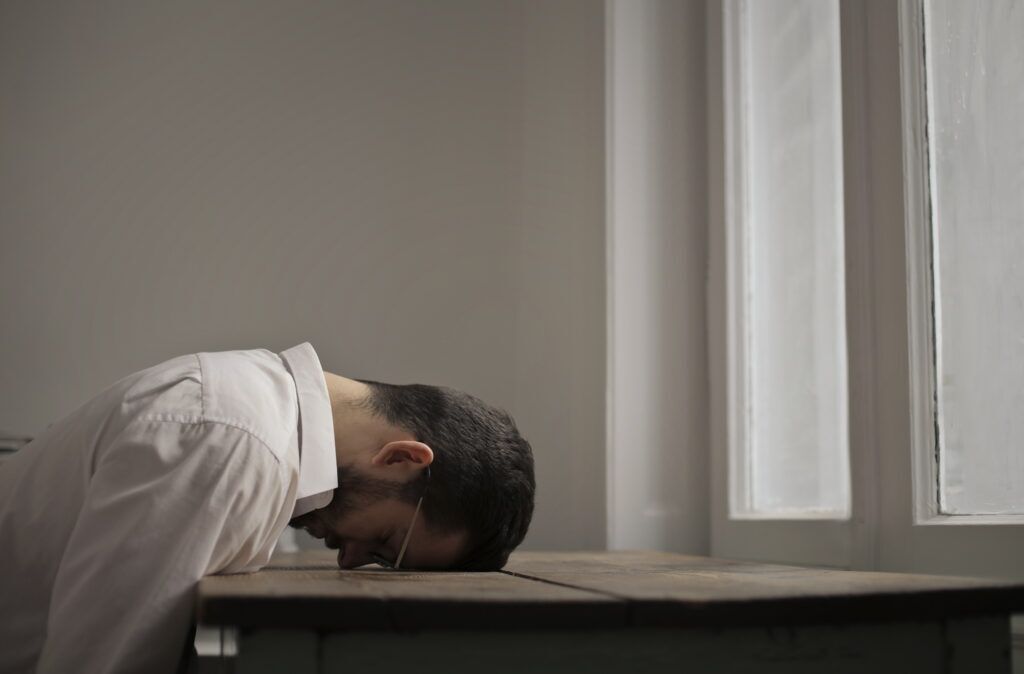Studies have demonstrated that excessive alcohol use is correlated to the development of schizophrenia if there are pre-existing conditions. Alcohol affects the brain’s reward systems, and researchers have linked changes to this area of the brain with schizophrenia.
Alcohol abuse is a prevalent problem in today’s society and it has been linked to various negative health outcomes, including the development of mental illness. In this section, we will provide an overview of whether alcohol abuse can cause schizophrenia, a severe and chronic mental disorder that affects how a person thinks, feels, and behaves.
We will then proceed to explore the relationship between alcohol abuse and schizophrenia, along with the symptoms of both schizophrenia and alcohol-induced psychosis. This information can aid in understanding the potential impact of alcohol abuse and the need for early intervention in those experiencing symptoms.
The Relationship between Alcohol Abuse and Schizophrenia
The Relationship between Alcohol Abuse and Schizophrenia – Introduction:
Studies show that alcohol abuse raises the risk of schizophrenia, although the relationship between the two is not yet clearly understood. Some theories suggest that alcohol abuse could trigger or worsen symptoms for people predisposed to the condition, while others say it could damage the brain and cause schizophrenia. Regardless, people with alcohol abuse should seek help. Mental health professionals can provide insight and support.
Symptoms of Schizophrenia and Alcohol-Induced Psychosis
Schizophrenia and alcohol-induced psychosis are mental health issues that can cause hallucinations, delusions, disordered thinking, and behavior changes. These can be caused by too much alcohol, and can make schizophrenia even worse. Here are some common symptoms to watch for:
- Hallucinations: Seeing or hearing things that aren’t there.
- Delusions: Believing in things that aren’t real.
- Disordered thinking: Not being able to think clearly, with thoughts that jump around.
- Changes in behavior: Speaking in a disorganized way, withdrawing socially, and losing motivation.
If you or someone you know has these symptoms, seek help right away. A proper diagnosis and treatment can improve recovery chances. Lastly, avoiding excessive alcohol is important to avoid alcohol-induced psychosis or worsening schizophrenia.

Identifying Alcohol Abuse and Schizophrenia
Alcohol abuse and schizophrenia are two distinct conditions that share a complex relationship. In this section, we will explore the challenges that arise in identifying alcohol abuse and schizophrenia and understanding how they interact. We will begin by examining the difficulties inherent in diagnosing both conditions and the diagnostic challenges that clinicians face in distinguishing between them. Then, we will consider the genetic and environmental factors that may play a role in the development of each condition and how they might interact. Finally, we will discuss the co-occurring mental health conditions that often accompany alcohol abuse and schizophrenia and how they complicate treatment efforts.
Diagnostic Challenges
Identifying alcohol abuse and schizophrenia can be tricky for healthcare professionals, since the symptoms are similar. Hallucinations, delusions, and disorganized thinking can be caused by either condition. Alcohol abuse can’t cause schizophrenia on its own, but it may activate it in people who have a genetic tendency.
Diagnosis needs a careful assessment of medical background, behavior, and family history, plus testing to tell between alcohol use and schizophrenia. It’s crucial to get professional help, which often uses medical staff, therapists, and support groups.
Data shows those with alcohol use issues are 4.6 times more likely to get schizophrenia than those without. This makes early detection and treatment of alcohol abuse all the more important, to avoid schizophrenia.
In conclusion, diagnosing alcohol abuse and schizophrenia is a difficult task. Healthcare workers need to be extra cautious.
Genetic and Environmental Factors
Alcohol misuse intertwines with genetic and environmental aspects to amplify an individual’s susceptibility to schizophrenia. Certain genetic modifications can shift the equilibrium of chemicals in the brain that control emotions and behavior – rising the danger of both alcohol use disorders and schizophrenia. Having to go through traumatic events can also add to the development of these conditions.
Looking for assistance for alcohol misuse and mental illness is vital for long-term healing and health, since alcohol abuse can stop treatment and make symptoms worse.
Co-occurring Mental Health Conditions
Alcohol abuse and schizophrenia often come together. Alcohol doesn’t cause schizophrenia, but it can make it worse. It’s essential to recognize the signs of both.
Signs of alcohol abuse include:
- Drinking more than usual.
- Keeping secret drinking.
- Ignoring duties.
- Not enjoying hobbies or socializing.
Signs of schizophrenia include:
- Seeing or hearing things that aren’t there.
- Talking in a confused way.
- Not expressing emotions.
If you think you or someone you know has both issues, get help from a doctor quickly. Don’t wait.
Treatment Options for Alcohol Abuse and Schizophrenia
Alcohol abuse and schizophrenia can have a detrimental effect on one’s mental and physical health. Treatment options for these co-occurring disorders are often diverse and can involve medication, behavioral therapies, or a combination of both.
In this section, we’ll explore two main areas of treatment for alcohol abuse and schizophrenia:
- Medications: Medications can be used to manage symptoms of both conditions.
- Behavioral Therapies: Behavioral therapies can be used to help patients maintain sobriety and manage their schizophrenia symptoms.
By having a deeper understanding of these treatment options, we can better support those suffering from this challenging dual diagnosis.
Medications for Schizophrenia and Alcohol Addiction
Antipsychotic meds and therapy are recommended for people with schizophrenia and alcohol addiction. Antipsychotics can help with disordered thinking, hallucinations, and delusions. Other meds, such as acamprosate, disulfiram, and naltrexone can help with addiction.
Therapy can address underlying causes, like past trauma or distress. CBT and family therapy are two examples.
It’s important to note: alcohol doesn’t cause schizophrenia. It can make the symptoms worse, but not cause it. Professional help and treatment can lead to a better quality of life.
Pro Tip: Consult a mental health pro for the best treatment plan for you.
Behavioral Therapies
Behavioral therapies, such as Cognitive-behavioral therapy (CBT) and Motivational Enhancement Therapy (MET), are established to work well with treating alcohol abuse and schizophrenia. Alcohol abuse and schizophrenia are linked, because one condition can make the other worse.
CBT and MET are important therapies to take into account when dealing with alcohol abuse. They are very successful in helping people create coping strategies to lower or even stop drinking. For schizophrenia, Cognitive Behavioral Therapy for Psychosis (CBTp) and Family-focused therapy (FFT) have been useful treatments when combined with medication. CBTp helps manage symptoms by changing negative thinking patterns to positive ones. FFT promotes a family-oriented approach, which increases the family’s support and communication skills.
It is essential to remember that while alcohol abuse can cause schizophrenia, it is not the main source of it. Nonetheless, managing alcohol abuse can improve the outcome and help manage schizophrenia symptoms better.
Behavioral therapies, together with medication, increase treatment options for people with alcohol abuse and schizophrenia. Therefore, it is highly suggested that people seek these helpful treatment options.
Daily Habits that Can Make a Difference
When it comes to managing alcohol abuse and its potential relationship to schizophrenia, establishing healthy daily habits is crucial. In this section, we will explore the specific daily habits that can make a difference to mitigate the impact of both disorders.
We will start by discussing how establishing a support system can make all the difference, including accountability and encouragement. Then, we will delve into the benefits of regular exercise and healthy eating, key factors that can positively impact both alcohol abuse and schizophrenia symptoms. Lastly, we will explore stress management techniques and the importance of monitoring symptoms to seek help when necessary.
Establishing a Support System
Establishing a Support System:
Take steps for setting up a system of help for your mental health. Here are some everyday habits that support it:
- Connect with your folks: Reach out to family and friends often. Share your struggles with them.
- Join a support group: Get connected with people who have similar experiences.
- Take care of yourself: Make time for exercise, reading or meditation. Do things that make you feel better.
- See a professional: A therapist or counselor can be a great addition to your support system.
Drinking a lot of alcohol can raise the risk of schizophrenia, especially if someone in your family has it. Alcohol does not directly cause it, but it may cause symptoms in people predisposed to it. To prevent developing schizophrenia or worsening symptoms, keep your alcohol consumption low and get help if you have an alcohol problem.
Regular Exercise and Healthy Eating
Regular Exercise and Healthy Eating – Daily Habits that Can Make a Difference
Let’s explore how being active and eating healthy can have a positive impact on your health. Research has revealed that people who do regular exercise and eat a balanced diet have a lower risk of getting serious illnesses like heart disease, stroke, and diabetes. Furthermore, living a healthy lifestyle can also benefit your mental health, reducing anxiety and depression. So, if you want to make some positive changes, begin by doing regular exercise and eating well. See the difference it makes for yourself!
Stress Management Techniques
The article examines stress management strategies and habits. These include deep breathing, meditation, yoga, exercise, journaling, and being in nature. Time management and setting boundaries can help reduce stress. Professional help is important if signs of excessive stress or alcohol abuse show.
Studies show that alcohol abuse raises the risk of schizophrenia. Alcohol may not directly cause schizophrenia, but it can trigger it in those vulnerable due to genetics or environment. Seeking professional help is essential if struggling with alcohol abuse or mental health.

Monitoring Symptoms and Seeking Help
Alcohol abuse increases the risk of developing schizophrenia, a serious mental health disorder. Track your symptoms and get assistance. Exercise, social support and relaxation techniques like meditation or breathing can aid in managing daily symptoms.
Early detection and treatment of symptoms, such as hallucinations or delusions, is important for managing schizophrenia effectively. Combining therapy/counseling, medication and other support helps people manage their condition and improve their quality of life.
1% of the world’s population have schizophrenia. This reduces quality of life by over 50% compared to the normal population. So, recognizing symptoms and seeking help quickly is important for a better chance of recovery.

Some Facts About Can Alcohol Abuse Cause Schizophrenia:
✅ Alcohol abuse can increase the risk of developing schizophrenia. (Source: National Institute on Alcohol Abuse and Alcoholism)
✅ Schizophrenia and alcohol use disorders often co-occur, a phenomenon known as a comorbidity. (Source: National Institute on Drug Abuse)
✅ Alcohol abuse can worsen symptoms of schizophrenia, such as hallucinations and delusions. (Source: National Alliance on Mental Illness)
✅ Heavy alcohol use during adolescence may increase the risk of developing schizophrenia later in life. (Source: Schizophrenia Bulletin)
✅ Treatment for co-occurring schizophrenia and alcohol use disorders often involves integrated care and addressing both conditions simultaneously. (Source: American Psychological Association)
FAQs about Can Alcohol Abuse Cause Schizophrenia
Can alcohol abuse cause schizophrenia?
Alcohol abuse does not directly cause schizophrenia, but it can increase the risk of developing the disorder in people who are already predisposed to it due to genetic or environmental factors.
What is schizophrenia?
A Schizophrenia is a chronic and severe mental disorder that affects the way a person thinks, feels, and behaves. It is a life-long disease that requires treatment and care.
How does alcohol abuse increase the risk of schizophrenia?
Alcohol abuse can cause changes in the brain, including reducing the size of the brain’s frontal lobes, which play a significant role in decision-making, planning, and judgment. These changes can increase the risk of developing schizophrenia.
Is alcohol abuse the only cause of schizophrenia?
It depends, alcohol abuse is not the only cause of schizophrenia as the disorder has a complex etiology involving multiple genetic, environmental, and neurobiological factors.
Can alcohol abuse worsen schizophrenia symptoms?
Yes, alcohol abuse can make schizophrenia symptoms worse, making it difficult for individuals to manage their symptoms and engage in daily activities like work and school.
How can alcohol abuse be treated in individuals with schizophrenia?
Alcohol abuse in individuals with schizophrenia can be treated with a combination of medication, behavioral therapy, and support groups tailored to their specific needs and challenges.. It’s important to seek professional help to manage both conditions effectively.
















